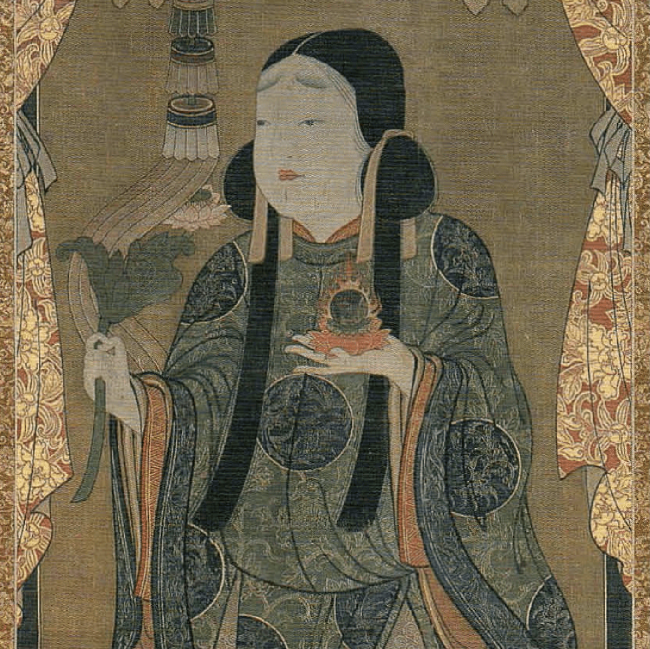
"Japan's Forgotten God: Jūzenji in Literature and the Visual Arts"
Speaker: Or Porath (Post-Doctoral Researcher Department of East Asian Languages and Civilizations)
Discussant: Ian Cipperly (PhD student, Department of History)
The paper will explore the deity Jūzenji 十禅師 of the Sannō pantheon of Hie Shrine in Shiga prefecture. Lost during the separation of Buddhism and Shinto in the Meiji period, Juzenji’s medieval importance has been all but forgotten. Through the examination of textual and visual evidence, the paper will argue that powerful and influential people, such as the Tendai monk Jien (1155-1225) and the chroniclers lineage (kike) of Mt. Hiei, decided to actively promote Jūzenji for their own ends, and in effect, elevated him to the status of supreme divinity, rivaling his own godhead. The paper will show that while it is often assumed Shinto doxa and praxis were entirely subsumed under Buddhist hegemony, it is possible to detect non-Buddhist tendencies becoming increasingly dominant in medieval Japanese religion—as demonstrated by doctrinal articulations that centered on the forgotten god Jūzenji. The cult’s elevation of Jūzenji as part of its kami-centrism can be seen as an assertion of Shinto innovation—which opened new ways for thinking about kami.
Or Porath is a scholar of Buddhist studies with broad interests in East Asian religions, the history of gender and sexuality, and monasticism. Porath specializes in the religions of Japan, specifically the influential school of Tendai Buddhism, its doctrines and practices, and the intersection between the Buddhist worldviews and issues of gender and sexuality. His current book project, The Dharma of Sex: Initiation and Deification in Japanese Religion, examines the "consecration of acolytes" (chigo kanjō), a sexual initiation that was doctrinally sanctioned in orthodox Buddhist teachings. Porath investigates in his work how male-male sexual acts were sanctified and grounded in Tendai doctrinal concepts, and the manner in which they shed light on the Buddhist assimilation of local forms of worship including Shinto. He is the author of “The Cosmology of Male-Male Love in Medieval Japan: Nyakudō no Kanjinchō and the Way of Youths,” in Journal of Religion in Japan (2015), the article “Nasty Boys or Obedient Children? Childhood and Relative Autonomy in Medieval Japanese Pedagogical Texts,” in Child’s Play: Multi-sensory Histories of Children and Childhood in Japan (2017), and "Sexuality" in The Bloomsbury Handbook of Japanese Religions (2021).
Ian Blaise Cipperly is a PhD student in the University of Chicago History department. He received his BA with High Honors from The University of California at Berkeley in 2011 and his MA from The Department of History at The University of Oregon in 2016. This year, he acted as panel organizer for the 49th Meeting of the Southwest Conference on Asian Studies “Profane voices in Sacred Discourse: Re-centering the Periphery Through the Materiality of Religious Traditions of East Asia,” where he presented his paper "Contradictions in ordering the Sacred: The Entropy of Numinous Authority in Early Modern Japanese Festivals." Additionally, he presented his individual paper “Ordering the Sacred: Numinous Authority in Early Modern Japanese Festivals” at the 69th Midwest Conference on Asian Affairs. While his main interests are in Japanese history (Azuchi-Momoyama and Edo period Japan (1568-1868)), he also has an interest in early modern formulations of Tendai through his research on Tōshōgū and Tokugawa Ieyasu. For more information regarding Ian and his academic interests, please refer to his department's website (https://history.uchicago.edu/directory/ian-blaise-cipperly) and his CV.
Zoom Registration Link